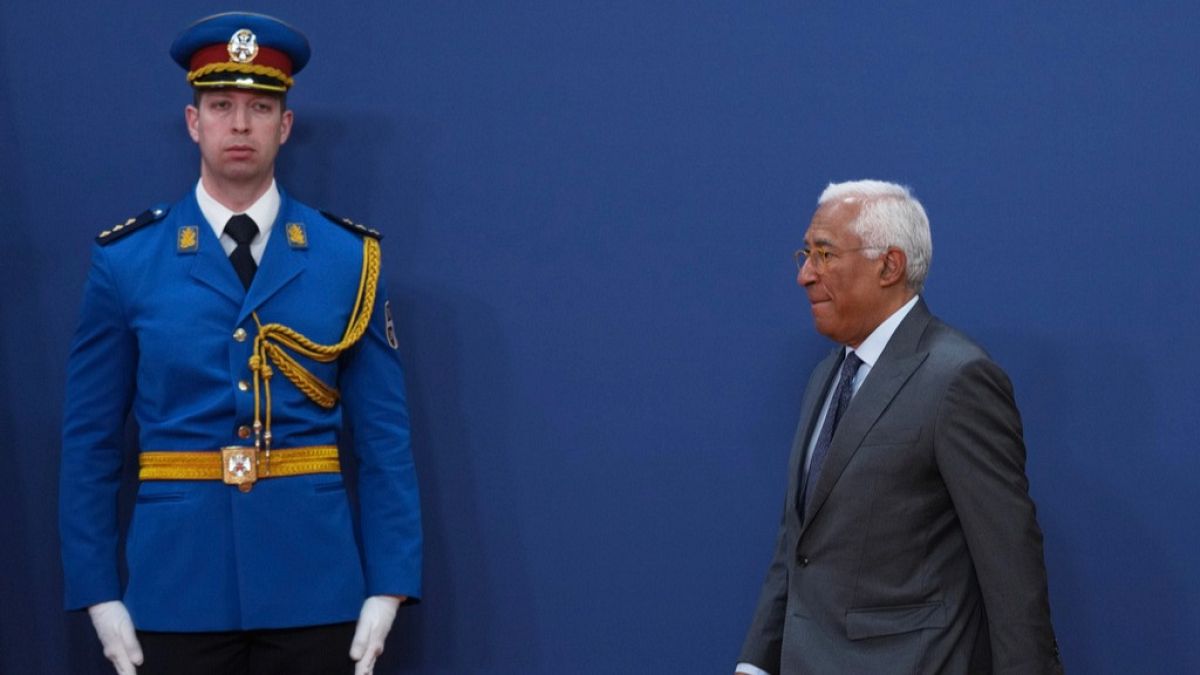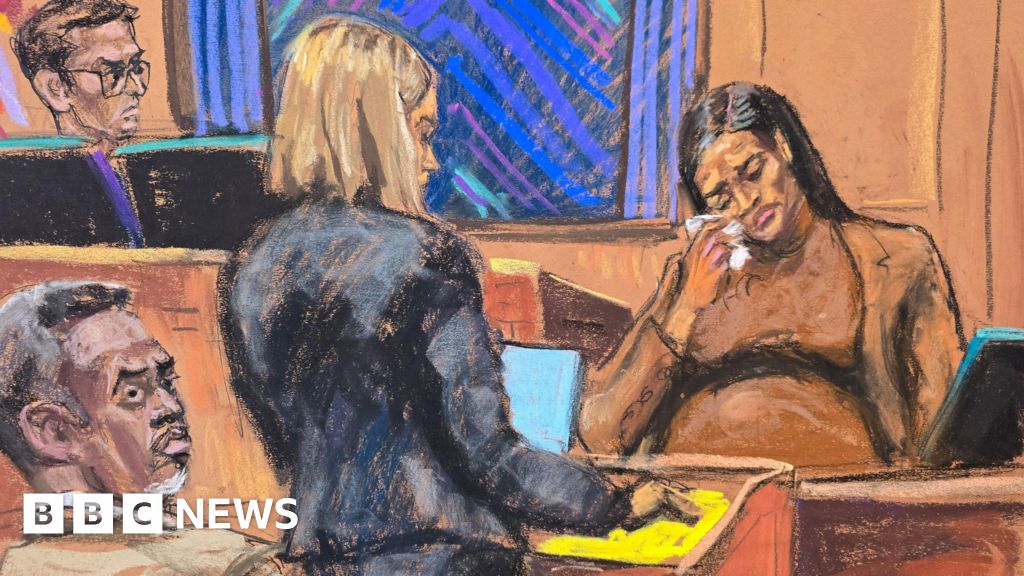Less a narrative feature than an impressionistic work of art, Jia Zhangke distills the past twenty years of his life through the perspective of Qiaoqiao (Zhao Tao) in his latest film, Caught by the Tides. The only “newly” shot portion for the movie occurs during its final half, set in 2022 during the COVID-19 pandemic, as Qiaoqiao reunites with her former lover, Bin (Li Zhubin), for the first time since their separation. What precedes this section is a non-linear assemblage of footage shot by Jia, either for his past films, such as Still Life, Ash is Purest White, and Unknown Pleasures, or footage he kept for himself until today.
Watching such a movie feels truly daring, as Jia moves away from his linear works into associative territory, linking one piece of shot-on-video footage with another, completely different, celluloid image. The most impressive moment occurs near its end, as the movie cuts from a top-down shot of a ballroom, where a group of people dance during the pandemic, to a fish-eyed digital zoom of a supermarket CCTV camera, first honing in on a pack of oranges, then clumsily careening around the space, desperately looking for an image to focus on. The camera follows Bin inside the market as he reunites with Qiaoqiao. From there, pure cinema occurs.
Bin reunites with Qiaoqiao and, despite the face masks they are wearing, the two immediately recognize each other’s eyes. Jia lingers on their masked faces for a bit before Bin removes it, to the shock of Qiaoqiao, still unable to process that he’s in front of him, after so many years apart. It’s one of the most potent images in post-COVID filmmaking, where the director is able to find purpose in the sanitary limitations of the era, showing us that connections were still possible, despite the tragic situation the characters were living in.
Many filmmakers have tried to express the COVID-19 era in film, but have failed to draw anything meaningful out of it. The only artist who got something out of the anxieties such an event drew was Steven Soderbergh when he made his paranoia thriller KIMI in 2022. Radu Jude also tried to say something out of such an event with his unofficial duology Bad Luck Banging or Loony Porn and Do Not Expect Too Much from the End of the World (both are masterpieces, by the way), but no filmmaker expressed dramatic power the way Jia does in this particular section with Caught by the Tides, let alone letting the silences of his (masked) actors speak in ways that words cannot.
Zhao Tao’s performance is entirely silent, barring a section taken from Unknown Pleasures where the protagonist sings. But there isn’t a spoken word uttered by Qiaoqiao throughout the entire movie, and Jia lets us sit with her in silence, contemplating her future and the choices she has made that ultimately lead her to where she is during the pandemic. Even her exchange with Bin, preceding their breakup, is told through intertitles, with only their looks as the point of reference to make us feel their emotions. To some, that may be an alienating way to watch a movie, especially when Jia flows from one scene to the next without tangible linearity, a massive departure from what he is usually known for.
However, there’s something so emotionally stirring in Zhao Tao’s portrayal of Qiaoqiao, whether in the repurposed footage from Jia’s past films or what was shot for this movie, that makes the experience so worthwhile. The best parts of acting are conveying everything you want to say without having the need to say anything. Few actors can accomplish this feat well and express a litany of emotions like this, yet Zhao Tao does it so effortlessly. Her forced smile hides feelings she doesn’t want to put forward, even though we can clearly read them. Qiaoqiao isn’t happy, and her current trajectory ensures she won’t find the peace she wants.

It’s only during an interaction with a robot, in one of the year’s most moving exchanges, that we get to see the real Qiaoqiao, who warms up and happily smiles, for the first time, after the machine tells her, “Mother Teresa once said, if you love until it hurts…there can be no more hurt, only more love.” It’s the first occasion where we see her feel something, and the rest of the film, where Qiaoqiao ties up all of her past loose ends, gives her the courage to do what she needs to do to move on. It’s simultaneously heartbreaking and profoundly affecting, even if Jia’s associations sometimes lose their meaning, particularly in the movie’s midsection.
That said, even if Caught by the Tides sags and loses its intent in a few places, Jia Zhangke knows he has to anchor his decades-spanning emotional journey through the eyes of his wife and creative partner, Zhao Tao. It’s through those sullen, devastating looks that pierce the artifice of cinema and touch us so profoundly that we’re ultimately moved by this daring proposition from one of China’s greatest formalists, caught in the tides of the past and present, and offering us no solutions for a future that doesn’t look as promising as it might have been envisioned, by Qiaoqiao, or society itself…
SCORE: ★★★1/2











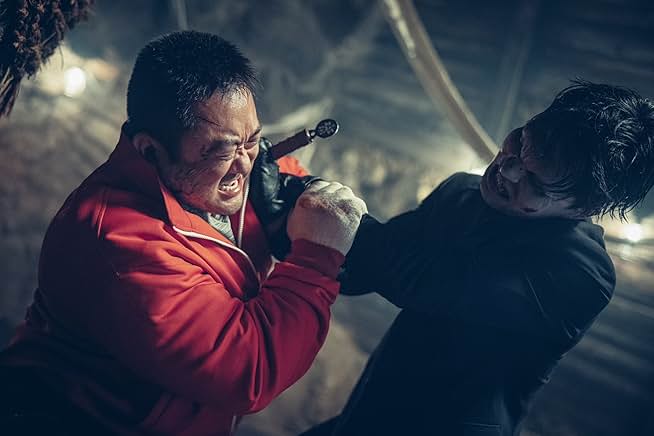
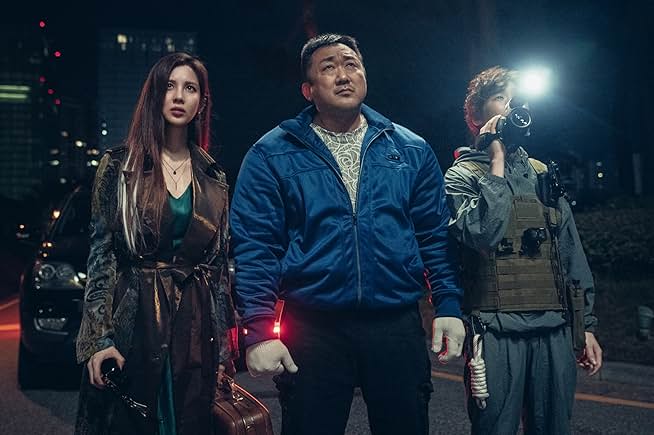

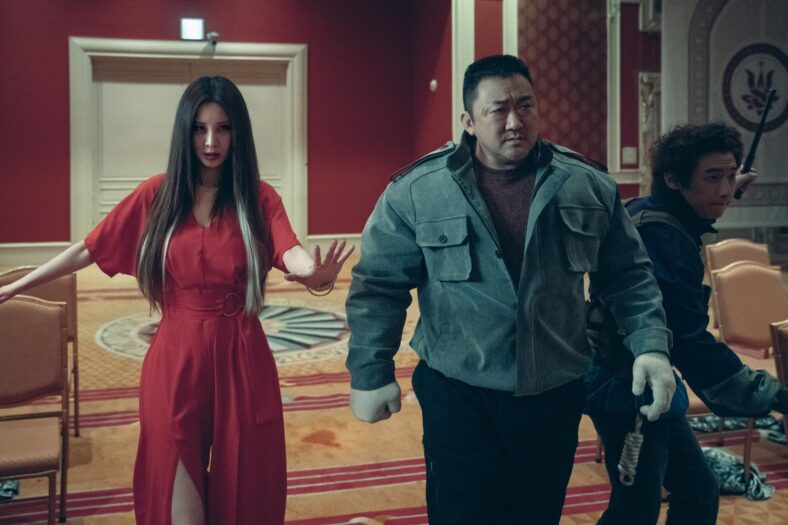
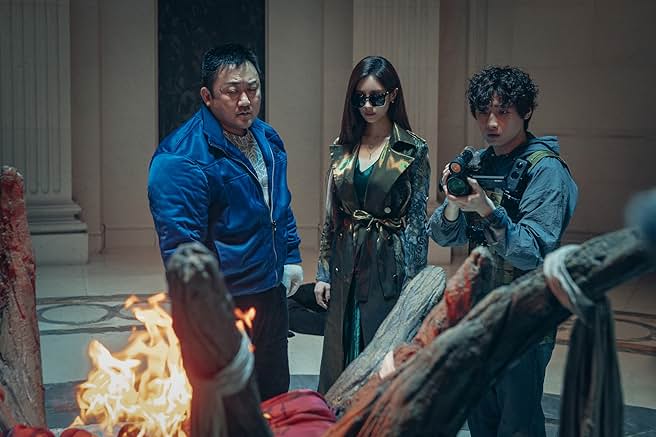

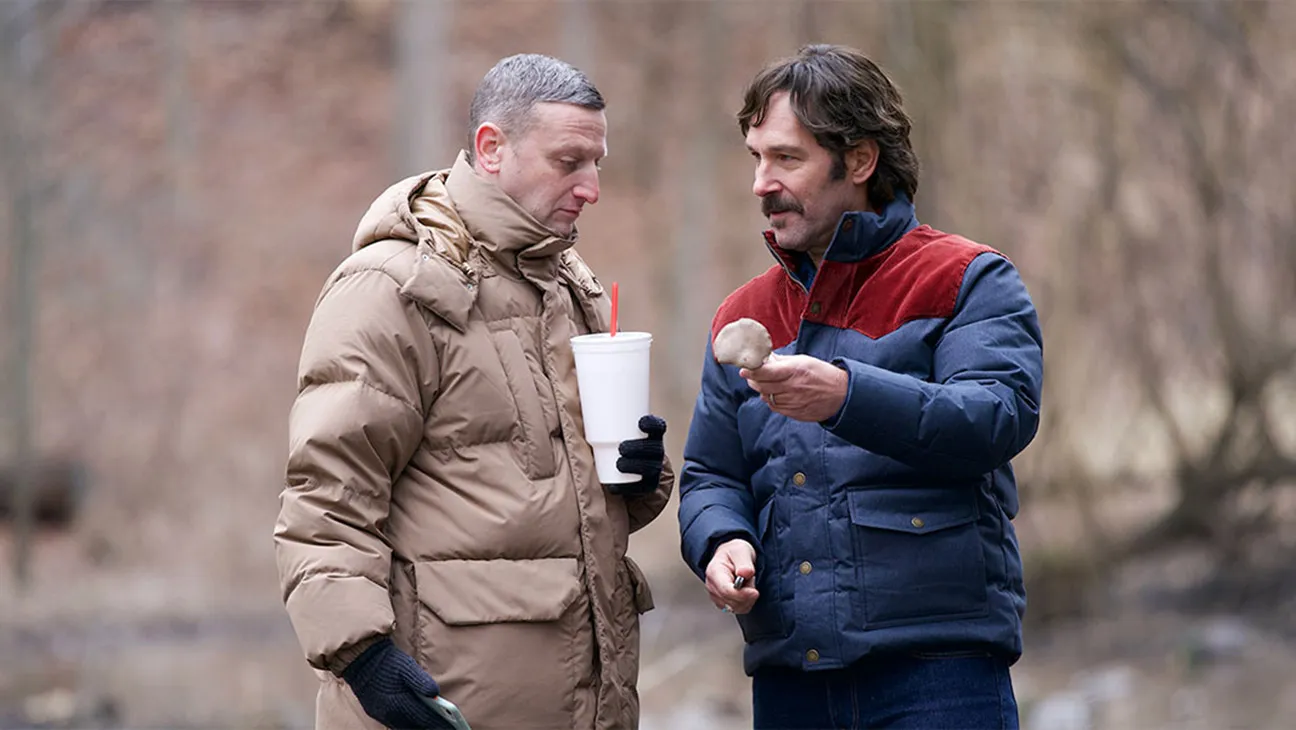


.jpg)








